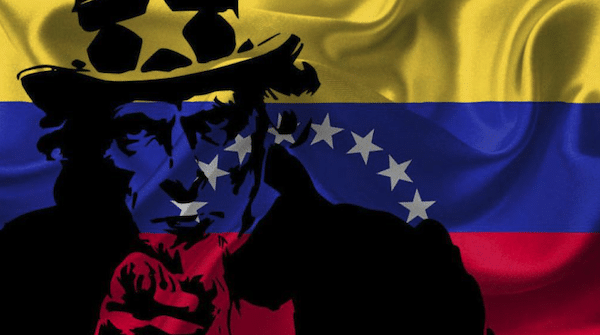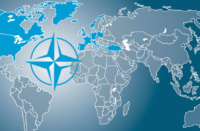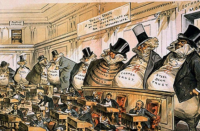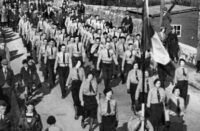In recent weeks, the United States has sharply escalated its attempts to throttle the Bolivarian Revolution in Venezuela. Under the pretext of fighting drugs, the US has deployed thousands of troops, warships, a nuclear submarine, and F-35 fighter jets off the Caribbean coast of Venezuela. These forces have attacked fishing vessels, killing all aboard, claiming—dubiously—that the passengers were drug traffickers, a claim the Venezuelan government rejects.
The assertion that the US is fighting drugs by trying to overthrow the Bolivarian Revolution is nonsensical and hypocritical. It is well-known that the US was involved in trafficking cocaine into Latin America, with Washington’s Plan Colombia leading to a dramatic rise in drug production and trafficking in that country. Suspiciously, the same pattern occurred in Afghanistan, where opium production and trafficking skyrocketed after NATO’s occupation began in 2001.
Drug cartels in Colombia and Mexico were, in many cases, financed and aided by the CIA, funding the likes of the Nicaraguan Contras fighting the Sandinista Revolution and Colombian death squads fighting the FARC. Killing two birds with one stone, many of the trafficked drugs found their way into Black ghettos in the US.
According to the UN Office on Drugs and Crime, only 5% of drugs consumed in the US pass through Venezuela, and of that, 70% are intercepted by Venezuelan authorities. Despite this, President Trump has labelled Venezuelan President Maduro a “narco-dictator,” with the US government raising its bounty on Maduro from $25 to $50 million—the highest bounty in history for a sitting head of state. A similar pretext was used for the US invasion of Panama in 1989.
In response to this naked imperialist aggression, the Bolivarian Revolution has turned to the Venezuelan masses to defend their country’s sovereignty. Up to 4.5 million members of the Bolivarian National Militia have been mobilised under the leadership of President Maduro. On September 13, Venezuela launched the ‘The People Go to the Barracks’ Plan, linking the millions of militia members and the country’s armed forces in military exercises.
Contrary to the notion that Trump is a president of peace, the objective of the US ruling class is to protect the interests of monopoly-capital, using any and all means to do so. At the same time that it threatens Venezuela, imperialism continues to support the Zionist genocide in Gaza and has threatened Iran. A recent revelation in the New York Times mentioned how Trump ordered Seal Team Six to infiltrate the DPR Korea in 2019, only for the mission to fail, with the special forces team opening fire on a fishing boat and killing Korean fishermen.
Defence Secretary Hegseth has received approval for his proposal to rename the US Department of Defense to the Department of War—probably a more honest title.
The US attempts to overthrow the Bolivarian Revolution in Venezuela have included several failed coup attempts against Presidents Hugo Chávez and Nicolás Maduro, along with CIA-front organisations like the National Endowment for Democracy funding NGOs and “civil society” organisations directly from Washington. These groups have organised street riots which have seen supporters of the Bolivarian Revolution murdered; in one case, a man was burned to death by fascist mobs. It should be mentioned, given the current US propaganda, that Venezuelan gangs, including drug cartels, have been at the forefront of these riots.
US economic warfare since 2015 caused a collapse in Venezuela’s oil industry, hyperinflation, and a deteriorating social situation, empowered by US control of global finance, the supremacy of the dollar, and ideological influence. To illustrate the human toll of these unilateral coercive measures on Venezuela: between 2017 and 2018 alone, 40,000 deaths were directly caused by these policies.
Washington also tried to create a war between Venezuela and its neighbour, the pro-US government in Guyana, over the Essequibo region in 2023.
The Bolivarian leadership has managed an economic recovery, and the people have continued to defend their sovereignty. This resilience is clearly what is prompting the US to escalate aggression at a time when its hegemony is being undermined by an increasingly multipolar world—a struggle in which Bolivarian Venezuela is a key site.






